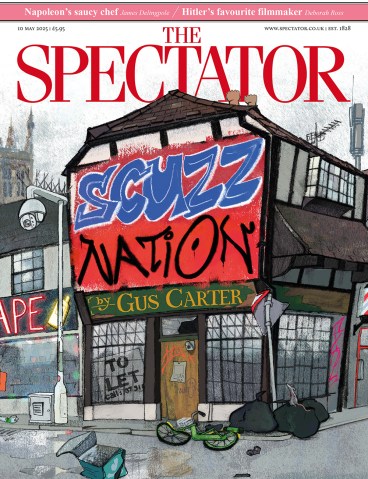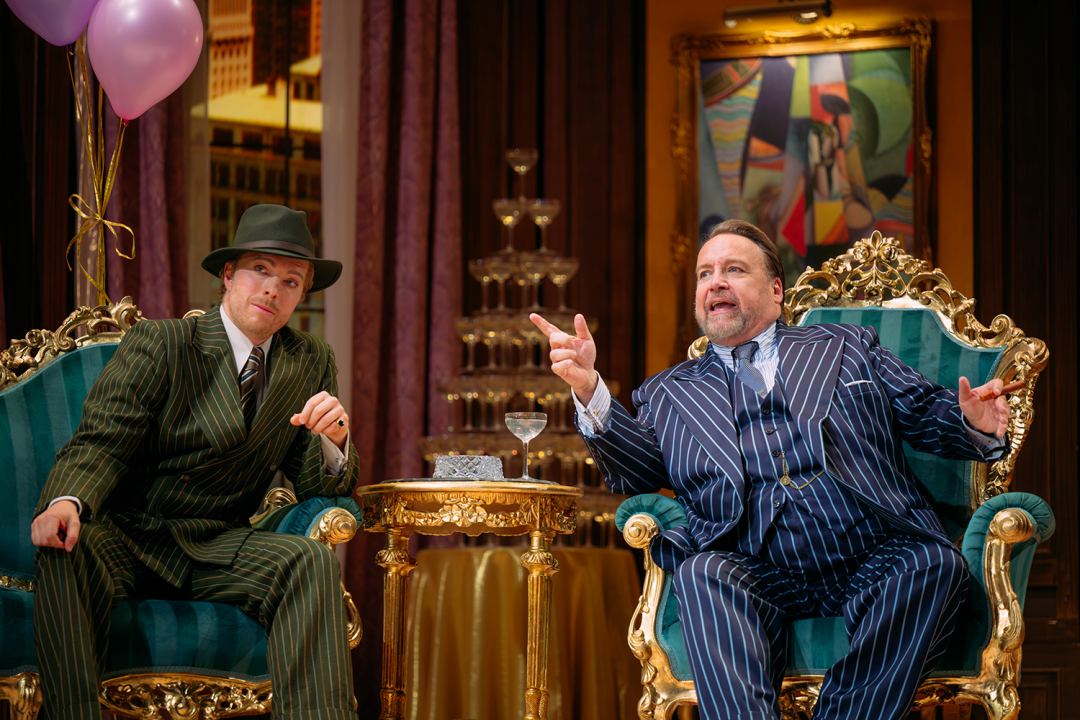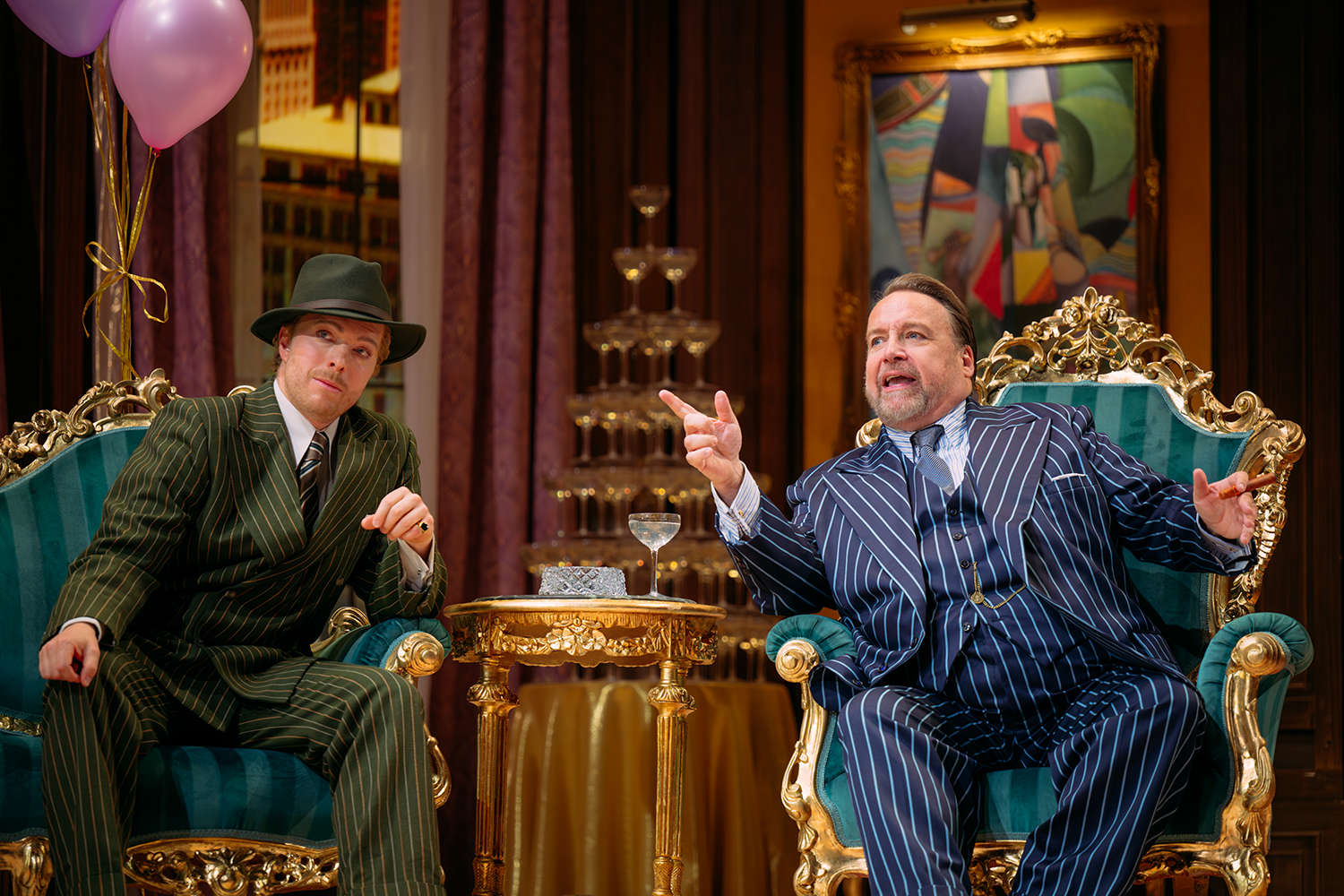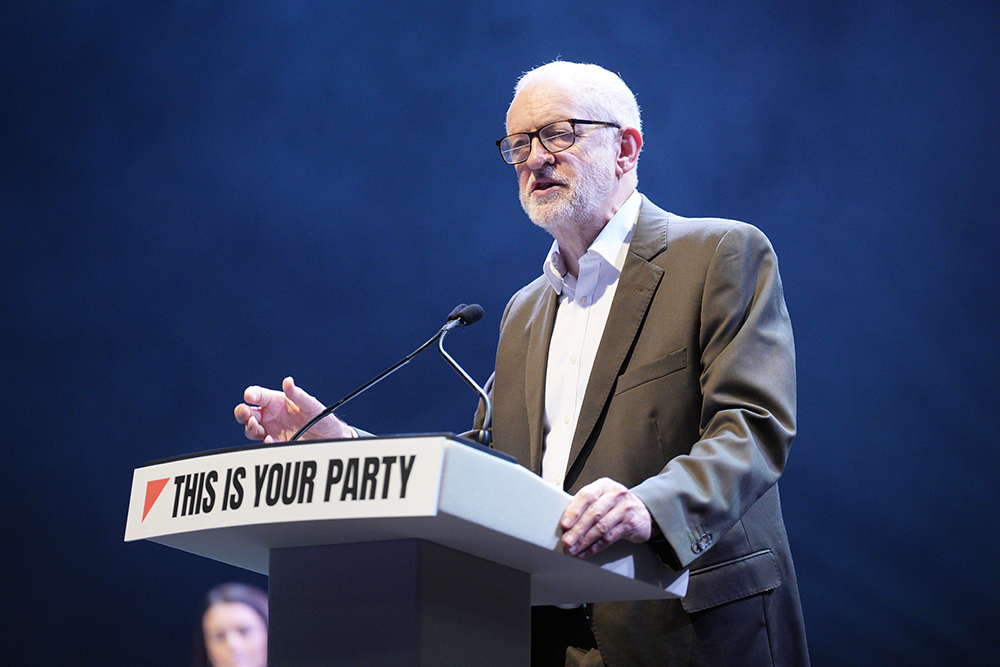
The Merry Widow was born in Vienna but she made her fortune in the West End and on Broadway. The original 1905 Viennese production was a shoestring affair. It was the English-language revivals in London and New York that made the Widow a global smash, and that happened only after extensive rewriting, done with Lehar’s wholehearted endorsement. Hanna Glawari (deemed unpronounceable) was renamed Sonia Sadoya, Zeta became Baron Popoff and the comedian George Graves inserted a humorous monologue about a chicken called Hetty. You probably had to be there.
Anyway, the point is that operetta is protean. Rewrites, updates and changes of setting are not only forgivable; they’re intrinsic to the genre. So there’s a world of artistic difference between a director arbitrarily relocating (let’s say) Der fliegende Holländer to the 21st-century Home Office, and what the director John Savournin has done with Scottish Opera’s new staging of The Merry Widow. Together with his regular collaborator David Eaton, Savournin has retranslated the book and lyrics. They’ve shifted the whole thing to 1950s Manhattan and – noticing that ‘Pontevedro’ and ‘Cosa Nostra’ share the same rhythm – have transformed Lehar’s Balkan diplomats into mafiosi. Zeta is the godfather, and Danilo (Alex Otterburn) is his consigliere. Bada bing!
Well, whaddya gonna do? British audiences simply aren’t as au fait with Ruritania as they used to be. You can play The Merry Widow as a period piece, as Glyndebourne did last year, sending it up in the process (Ambassador, you are spoiling it!). Or you can do what Lehar would have done – trust the characters, story and score and do whatever it takes to put them across. I’ll admit to misgivings: Danilo as killer? However cartoonishly it’s portrayed (and there are some irresistible sight gags) the Merry Widow exists in a universe where violent death should play no part.
In truth, these are very loveable wise guys (Henry Waddington, as Zeta, is positively cuddly). If any director has earned the right to take risks with this repertoire, it’s Savournin, and it’s marvellous how smartly it all falls into place. The new book and lyrics are snappy and hilarious, yet beneath the sharp suits, Goodfellas references and Joe Pesci accents, these are unmistakably the same old Danilo, Hanna and co., having the time of their lives in a world somewhere between High Society and Guys and Dolls. Otterburn is a fantastically versatile baritone but I hadn’t had him down as a romantic lead. As a sort of waltzing Brando-as-Sky Masterson, though, he nails it.
Hanna (Paula Sides), meanwhile, is a southern belle with a drawl that lends itself naturally to Lehar’s lilting melodies; her ‘Vilja’, like much of the singing in this production, is expressive without being languid. But then, the whole thing really zips along, boosted by Savournin’s exuberantly marshalled crowd scenes and a supporting cast with serious comic chops. Matthew Kellett’s rubber-limbed Nicky Negus is a wisecracking agent of havoc, while Valencienne – sorry, Valentina (Rhian Lois) – and Camille (William Morgan) are a secondary couple straight out of screwball, not that there’s any risk of the central romance descending into sentiment. Otterburn and Sides’s exchanges have a Beatrice and Benedick zest; a will-they-won’t-they tension that pays off with surprising emotional force.
Stuart Stratford conducts and again, he never wallows, with the orchestra making enthusiastic love to some of the silkiest textures and most seductive woodwind countermelodies in all of operetta – a score that’s closer to Richard Strauss than to Johann. I liked the way that the sets and costumes (by Takis) gradually defaulted back to something indistinguishable from a traditional Merry Widow, a tacit acknowledgment that when it comes to the crunch Savournin and his team prefer waltzes to whackings. We’re in good hands – better than that, inspired ones. Londoners: this production transfers to Opera Holland Park in June, and for my money that is an offer that you can not refuse.
Also touring is Opera North’s concert staging of Verdi’s Simon Boccanegra, a bold choice for the end-of-season, low-budget slot that ON has typically filled with more bankable propositions like Aida or The Pearl Fishers. To be fair, I’ve seen cheaper-looking stagings at the Royal Opera. In these days of ultra-minimalist aesthetics, the skeletal three-room set that director P.J. Harris positions in front of the orchestra could easily pass for a full-scale production, positioning Verdi’s historical epic as a taut (and strikingly lucid) drama of family and state.
The cast and chorus is excellent – proper swashbuckling Verdi singing, with Roland Wood (Boccanegra) sculpting bold, chiselled phrases in burnished bronze. Antony Hermus, conducting, made the maritime air of this fascinating opera shimmer and dance. Best of all, though, he unleashed Verdi’s tempests in playing of hair-raising precision and panache, slamming the orchestra into the curves like a Ferrari at Monza. Go and see it, but fasten your seatbelts.








Comments